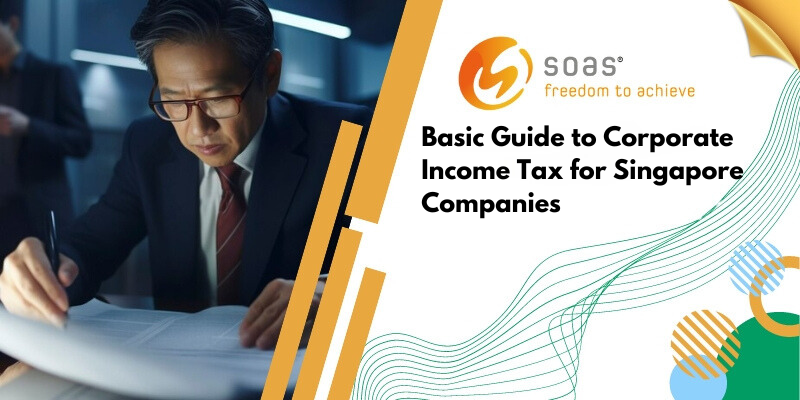Basic Guide to Corporate Income Tax for Singapore Companies
Singapore, with its stable political environment and favorable tax policies, attracts many investors and entrepreneurs. Before formally establishing a business, this article provides insights into Singapore’s corporate tax system, helping you make informed decisions and plan subsequent actions effectively.
Your company is a tax resident of Singapore when its control and management is exercised in Singapore.
Under Singapore tax law, the tax residency of a company is determined by where the business is controlled and managed.’Control and management’ is defined as the making of decisions on strategic matters, such as those concerning the company’s policy and strategy.Usually, the location of the company’s Board of Directors meetings where strategic decisions are made determines where the control and management is exercised.
While tax resident and non-resident companies are generally taxed in the same manner, tax resident companies enjoy certain benefits, such as:
- Exemption or reduction in tax imposed on specified foreign income that is derived in a jurisdiction that has an Avoidance of Double Taxation Agreement (DTA) with Singapore
- Tax exemption on specified foreign income such as foreign-sourced dividends, foreign branch profits, and foreign-sourced service income.
- Foreign tax credit for the taxes paid in the foreign jurisdiction against the Singapore tax payable on the same income
- Tax exemption for new start-up companies.
Corporate Income Tax is assessed on a preceding year basis in Singapore. Singapore’s Corporate Income Tax rate is 17% Whether you are a tax resident or non-tax resident
The tax exemptions for qualifying companies for their first 3 consecutive YAs are as follows:
- 75% exemption on the first $100,000 of normal chargeable income*; and
- A further 50% exemption on the next $100,000 of normal chargeable income*.
Chargeable income* refers to your company’s taxable income (after deducting tax-allowable expenses) for a Year of Assessment (YA).
To be a qualified company, the company should:
- Be incorporated in Singapore
- Be a tax resident of Singapore for that YA
- Have its total share capital beneficially held directly by no more than 20 shareholders throughout the basis period for that YA where:
- All the shareholders are individuals; or
- At least 1 shareholder is an individual holding at least 10% of the issued ordinary shares of the company
At the same time the company should not fall into either:
- Companies whose principal activity are that of investment holding
- Companies that undertake property development for sale, investment, or both
If the company doesn’t meet the above criteria, that’s okay, come check out the partial tax exemption (PTE).
All companies, including companies limited by guarantee, are eligible for partial tax exemption (PTE).
The tax exemptions for qualifying companies are as follows:
- 75% exemption on the first $10,000 of normal chargeable income*; and
- A further 50% exemption on the next $190,000 of normal chargeable income*.
Chargeable income* refers to your company’s taxable income (after deducting tax-allowable expenses) for a Year of Assessment (YA).
Capital gains are not taxable. These include:
- Gains on sale of fixed assets
- Gains on foreign exchange on capital transactions
To summarize, Singapore’s corporate tax system is globally competitive and straightforward, you can fully leverage this advantage to support the growth of your business. Of course, choosing the right service provider is crucial:
SOAS is a leading provider of integrated accounting, bookkeeping and company registration services in Singapore.With more than 17 years of experience and a team of dedicated professionals, we have successfully helped more than 1,000 organisations with complex corporate compliance and financial management issues.

